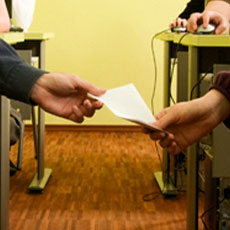Do Online Students Cheat More on Tests?
A lot of faculty worry that they do. Given the cheating epidemic in college courses, why wouldn’t students be even more inclined to cheat in an unmonitored exam situation? Add to that how tech-savvy most college students are. Many know their way around computers and software better than their professors. Several studies report that the belief that students cheat more on online tests is most strongly held by faculty who’ve never taught an online course. Those who have taught online are less likely to report discernible differences in cheating between online and face-to-face courses. But those are faculty perceptions, not hard, empirical evidence.





